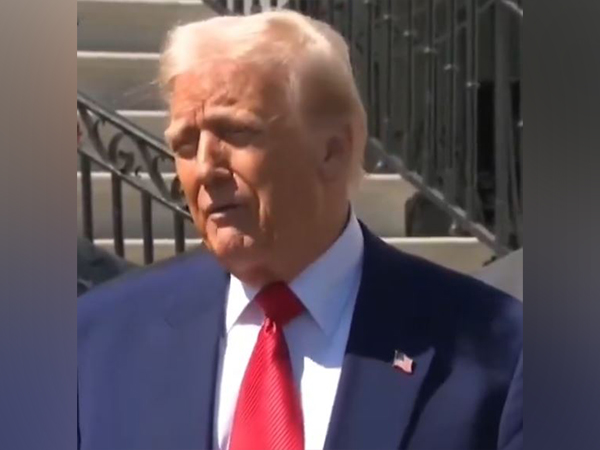Unemployed Hong Kong protestor jailed for 28 months for supporting Uyghurs in a rally
May 19, 2021

Hong Kong, May 19 : An Unemployed pro-democracy protester was jailed for 28 months for rioting and assaulting police at a rally in support of Uygurs in Hong Kong under the draconian National Security Law.
According to The South China Morning Post, An unemployed man has been jailed for 28 months for rioting and assaulting police after he tried to snatch an arrested protester during a Hong Kong rally in support of China's Uygur population two years ago.
Leung Ka-wai, 22, on Tuesday pleaded guilty in the District Court over his role in a police-approved rally that descended into chaos after a masked protester took down the Chinese national flag from a pole and flung it to the ground in Edinburgh Place, Central, just after 5 pm on December 22, 2019.
Police arrived to retrieve the flag and turned to leave as the person responsible had fled, but soon found themselves surrounded by a bigger group, who scolded the officers, according to acting assistant director of public prosecutions Betty Fu Yuet-yee, as reported by the South China Morning Post.
The prosecutor said a group of no less than 50 protesters assembled in the area and disrupted public order by violent acts that included attacking police and hurling objects such as water bottles at the officers.
A man, later identified as Luk Ka-yu, was subdued after he allegedly kicked a senior inspector's back.
Fu said a second man, Siu Tsz-fung, then pulled Luk's backpack in what she said was an attempt to help him evade arrest. Siu was then arrested, while Luk allegedly escaped with the help of others.
The protesters also continued to clash with officers as Siu was being subdued on the ground, Fu said, as reported by the South China Morning Post.
Four officers suffered minor injuries in the incident, ranging from abrasions to soreness.
On Tuesday, Leung, who had no prior convictions, pleaded guilty to one count of rioting and another of assaulting police. Rioting is punishable by 10 years in prison, but that term is capped at seven years when the case is heard in District Court.
In mitigation, defence counsel Lawrence Hui said Leung was deeply sorry and proactively sought counselling from social workers to improve his law-abiding awareness, as could be seen from his record of attending 18 consultation sessions offered by the Evangelical Lutheran Church of Hong Kong.
Leung's parents and sister also wrote to the court saying he had reflected on himself and grown closer to the family after the incident. They pleaded for leniency and said they would offer more guidance and support to him in the future.
Judge Edmond Lee Chun-man said the rioting was a serious crime, which in this case was aggravated by the fact that Leung had committed a second offence by assaulting police.
But the judge also observed that this riot was relatively less serious, in terms of its spontaneous nature, short duration of 20 minutes and small scale with limited disruption to public life and traffic, reported by South China Morning Post.
Lee accepted that Leung was a young man who acted in the heat of the moment and proactively sought help in the aftermath with his family's support.
Leung has been remanded since February 16, when he indicated his intention to plead guilty and offered to have his bail revoked.
His co-defendants, Luk and Siu, will stand trial next year, slated for five days beginning on March 14, as reported by South China Morning Post.
The other four defendants, including two university students, were convicted of a total of 10 charges including taking part in an unlawful assembly, assaulting a police officer and possession of offensive weapons. They all had their bail revoked ahead of sentencing on June 2.
Subversion was made a criminally punishable offence in Hong Kong last year under the Beijing-drafted national security law.
According to Beijing, the legislation criminalises activities related to terrorism, separatism, subversion of state power and collusion with foreign forces, while local pro-democracy activists and certain Western nations claim that the law undermines Hong Kong's civil liberties and democratic freedoms.
Beijing was perturbed by violent anti-government protests in 2019 and has imposed the national security law to take action against those who protested against the government.



















